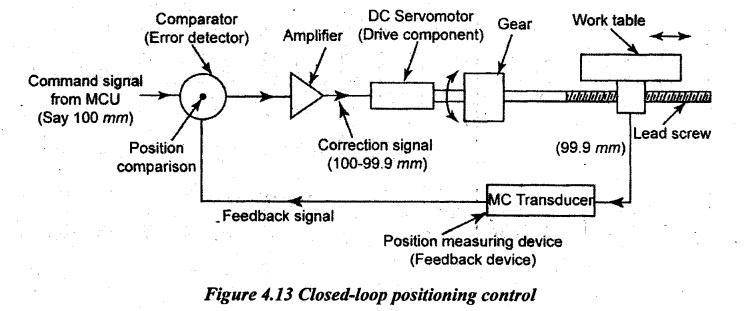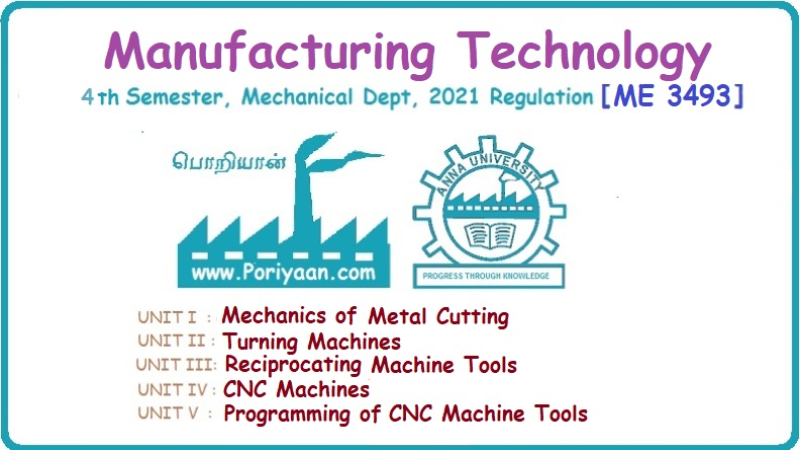Manufacturing Technology: Unit IV: CNC Machines
CNC control systems
CNC Machines - Manufacturing Technology
NC systems are classified on the basis of type of control system used as follows.
CNC CONTROL SYSTEMS NC systems are classified on the basis of type of control system used as follows. (a) Open-loop system (b) Closed-loop system. In the open-loop control system, the programmed instructions are fed into the controller through an input device. These instructions are then converted to electrical pulses (signals) by the controller and sent to the amplifier to energize the stepper motors. A stepping motor is defined as one whose output shaft rotates through a fixed angle in response to a given input pulse. The stepping motors are the simplest way for converting the digital electrical signals into a proportional moment. So, they are relatively a cheap solution to the control problem. The open-loop NC systems are always of a digital type and they use stepping motors for driving slides. The primary drawback of the open-loop system is that there is no feedback system to check whether the program position and velocity have been achieved. If the system performance is affected by load, temperature, humidity or lubrication, then the actual output could deviate from the desired output. Since there is no check on the slide position, the system accuracy is solely a function of the motor's ability to step through the exact number of steps provided at the input. For these reasons, the open -loop system is generally used in point-to- point systems where the accuracy requirements are not critical. The closed-loop system has a feedback subsystem to monitor the actual output and correct any discrepancy from the programmed input. These systems use position and velocity feedback. A position transducer acts as a feedback device. The feedback system could be either analog or digital. The analog systems measure the variation of physical variables such as position and velocity in terms of voltage levels. Digital systems monitor output variations by means of electrical pulses. To control the dynamic behavior and the final position of the machine slides, a variety of position transducers are employed. Figure 4.13 illustrates the concept of closed-loop digital control for one axis of motion. The closed-loop control measures the axis actual position and compares it with the desired reference position. The difference between actual and desired values is the error and the control is designed in such a way to eliminate or to reduce the error to a minimum. In this case, the system is a negative feedback one. Closed-loop systems are very powerful and accurate because they are capable of monitoring operating conditions through feedback subsystems and automatically compensating for any variations in real-time.1. Open-Loop System

2. Closed-Loop System

Manufacturing Technology: Unit IV: CNC Machines : Tag: : CNC Machines - Manufacturing Technology - CNC control systems
Related Topics
Related Subjects
Manufacturing Technology
ME3493 4th semester Mechanical Dept | 2021 Regulation | 4th Semester Mechanical Dept 2021 Regulation
